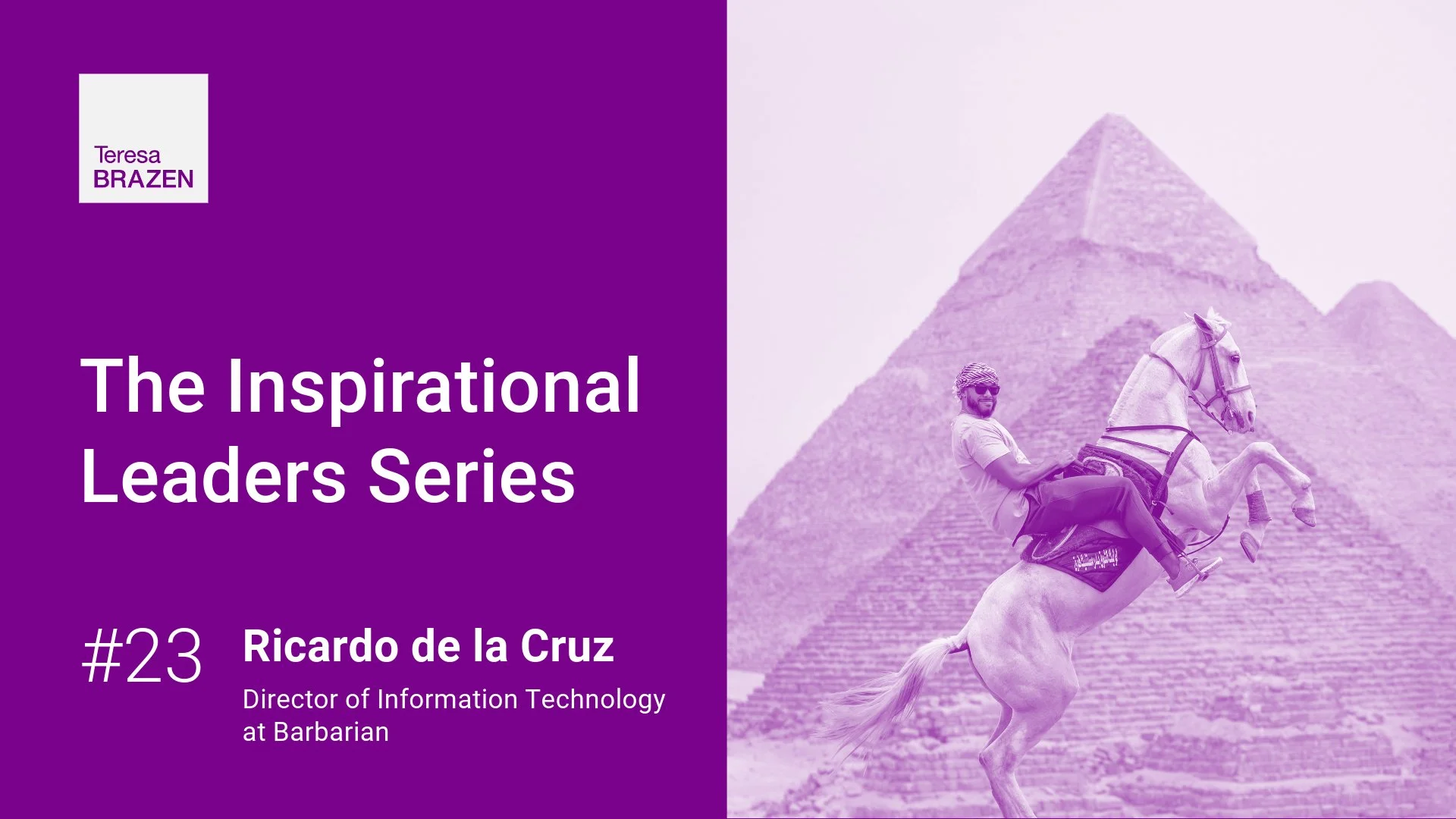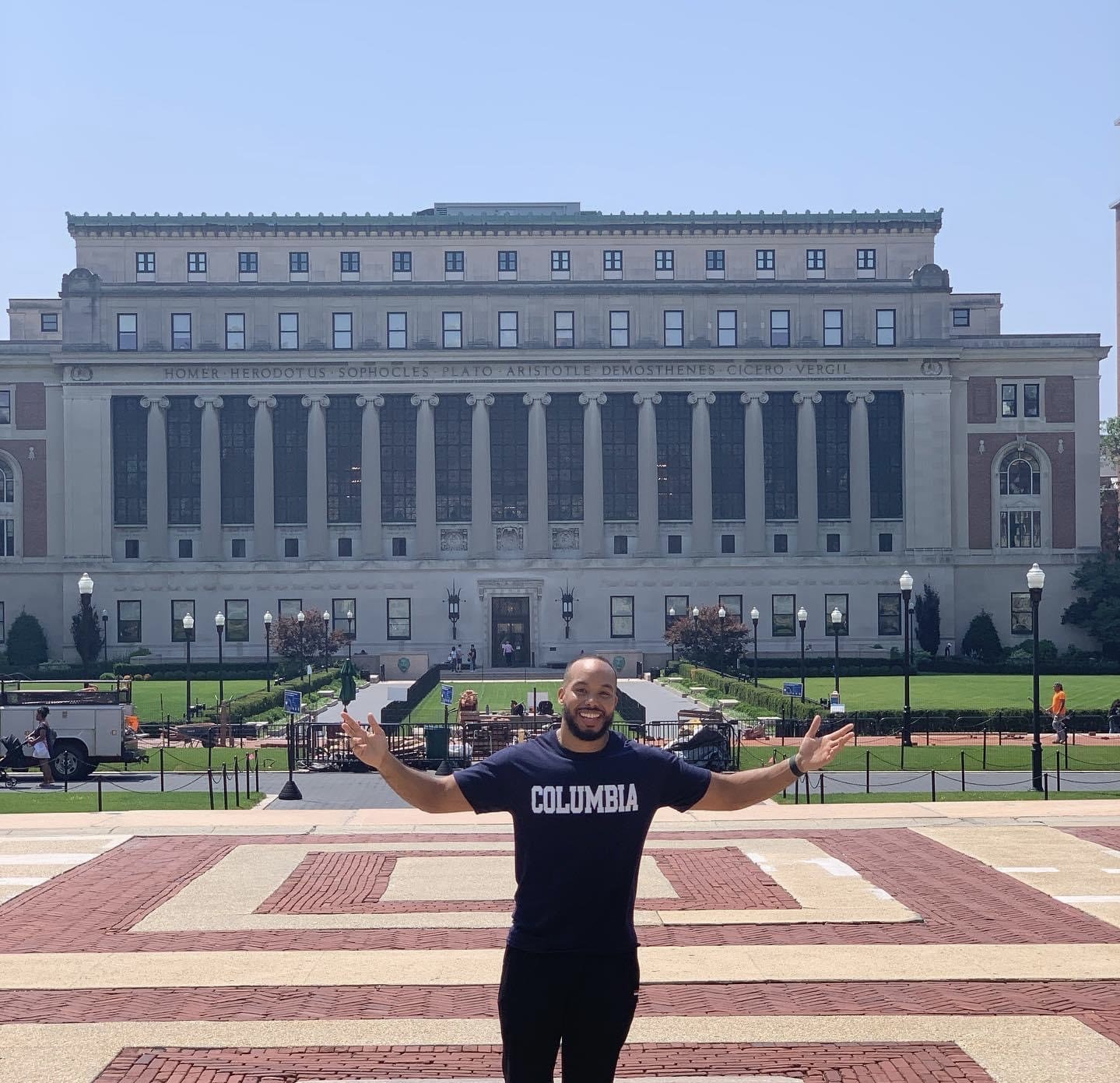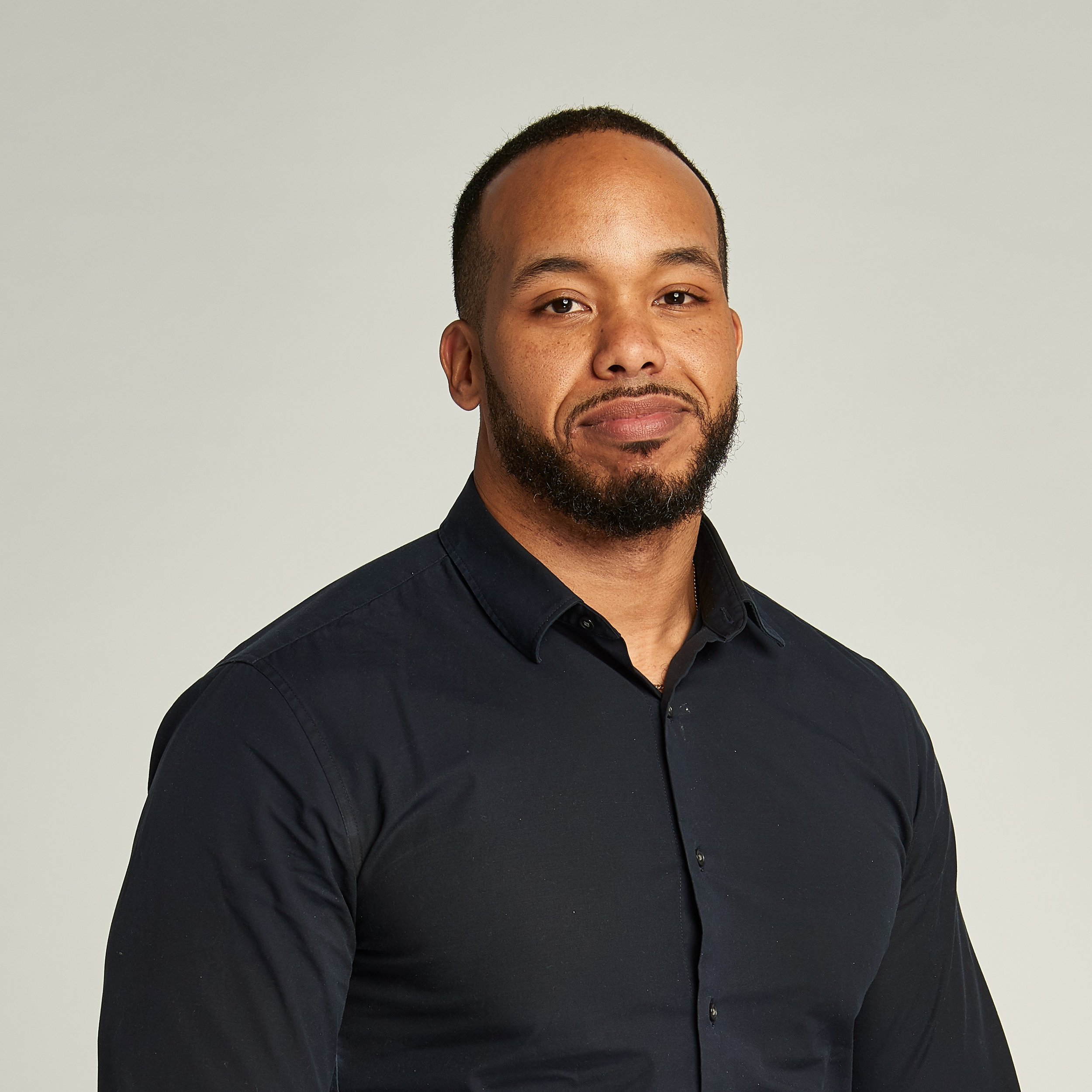“I know my purpose is to deliver to the business as well as serve my team, help them grow, and foster that relationship. Without the relationship, we're all just going to be robots, which means no creativity, no innovation.” - Ricardo de la Cruz
Welcome to the Inspirational Leaders Series, a collection of short interviews with sharp, impactful leaders that I know and respect—because the business world needs more refreshing people like them.
Meet Ricardo de la Cruz, Director of Information Technology at Barbarian. Ricardo is a tech leader who is bridging the gap between technology innovation and service excellence. He is also a mentor for young people in tech through Mentor for Life.
(Note: This interview has been lightly edited for length and clarity.)
What are one or two key experiences that shaped how you lead today?
In my last company, I worked for a CEO who was very helpful and supportive. What I appreciated most was he gave me the opportunity to be myself, which helped me shape my creativity and ways to be innovative and deliver to the business as well as my team.
That was helpful to see on the receiving end, to understand people do need space to be creative. That safe space brings out the best of my team members — things we've been able to, as a powerhouse of a collective lines, deliver to the business. I continue to write that in my script of leadership and build upon it.
I'm curious if you have some kind of driving purpose as a leader. What is the impact you are looking to have?
I like to be very focused on the humans themselves, to make sure they're growing as a person, that they're able to reach their goals as well as understand their impact on the business.
I know my purpose is to deliver to the business as well as serve my team, help them grow, and foster that relationship. Without the relationship, we're all just going to be robots, which means no creativity, and no innovation.
What is something that you believed about leadership that you have changed your mind about?
Something all of us should know is that micromanaging and an authoritarian type of leadership is not helpful when it comes to fostering creativity, relationships, innovation, and productivity. That's the part that you and I and a lot of the world fortunately agree with.
As far as something I changed my mind about just being able to put your flaws to the front. When I was younger, I always viewed my leaders in a certain way, on a pedestal. I wasn't criticizing them as much in the beginning. In a very junior mind, it's kind of like the leaders are flawless. They make no mistakes. They know everything, right? But no one's perfect.
What I've learned is putting your flaws to the front and being very transparent with people around you allows you to build trust. That's what helped me with a lot of my tech teams — as well as us interacting with other business departments — knowing that we're going to figure it out, even if we don't know the answer right away. We can make mistakes and have those teachable moments.
That's the tone I like to set in any relationship, whether it's professional, social, or anything outside of work. Let's be real. We're all human.
What you're talking about is actually pretty brave. What would you say the benefit of showing up in that way is — why is it worth taking that risk as a leader?
As a leader, you need the trust of your colleagues, your peers, and your teams. I was hired for that job for a reason, so I do have the qualifications and experience to do the job. But there are going to be gaps and things that I do not know that colleagues are going to fill in; there's nothing wrong with being upfront.
What have you learned about influence in your leadership journey?
Trust builds loyalty. With all my teams, I've had to develop relationships with each team member. It's been based on trust, on them not wanting to disappoint the team as well as myself. I found that's the way I've gotten the best results.
My leader influenced me to really see the reason why I'm doing the work that I do. Getting recognition for the good work that I've done, and recognizing my growth — those kinds of things have always kept me loyal. I was like, “I do not want to disappoint this person. I want to support her and make sure I don't let her down.”
I’ve also developed a mission for my team. Why are we here? Yes, we do tech work and we solve tech problems. What does that really do? And helping the teams understand that and connect those dots has really worked in my favor.
When it comes to leadership, what I think about a lot is energy management, so that you and others are able to show up in your optimal state. How do you think about that amid the demands of the business that you experience?
Working in tech, we're going to have a lot of unplanned moments, and a lot of things failing. We're also going to have to plan for those things to not happen in the future. So this is something that's in our DNA in our industry.
What makes a great leader [is] being able to keep your cool. Whether it's upper management, your team, or another department, there's going to be something that's going to test your patience.
We have to channel our energy to the right places. As long as we're not panicking, we figure it out. That's what we do. My direct reports understand how we can work together, so when they see that something is potentially high energy or high stress, they know how to help remediate that. They also know the vision of how we do things as a team.
Sometimes in the workforce, emotion is looked down upon. Emotions are going to happen, whether we try to hide them or not. So I say that there's nothing wrong with emotions because emotions drive our energy. It's just the way we keep it in check that’s important.




